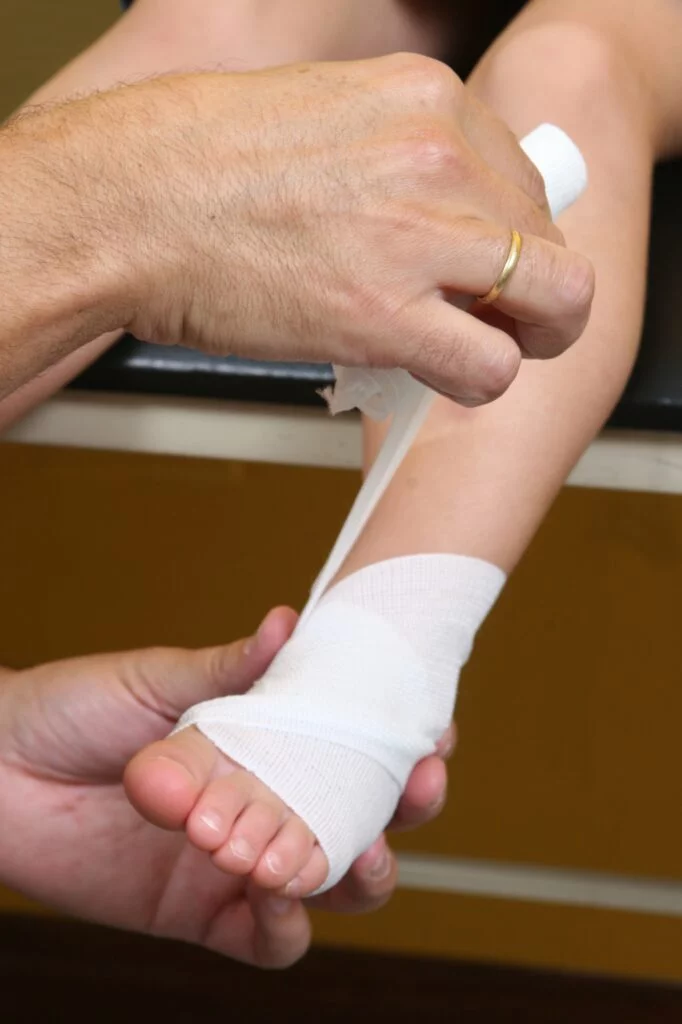Psoriasis is a type of skin disorder that can affect any part of the body, even the feet. It is a chronic disease and usually goes through cycles of excess symptoms and mild symptoms. Severe psoriasis can be triggered by a variety of causes but will subside when treated and go into remission.
Types of Foot Psoriasis
- Plaque psoriasis – can occur on almost any part of the body, including the feet.
- Palmoplantar pustulosis – specifically affects the palms of the hands and the soles of the feet.
- Erythrodermic psoriasis – causes red, scaly patches on much of the body, including the feet.
Symptoms
- Itchy feet
- Silvery scales on skin of feet
- Cracks
- Bleeding from sores and cracks in feet
- Red, dry patches of skin known as plaques
- Tiny, pus-filled blisters on feet
Causes
- Recent injury to the skin, like cuts, insect bites or sunburn
- Emotional stress
- Change in weather
- Illness
- Infections
- Certain medications
- Family history
Treatment for Psoriasis on the Feet
There is no cure for psoriasis, but there a number of treatments that can help in the relief of symptoms and decrease the occurrence of flare-ups. Usually, the type of treatment depends on the type of psoriasis, the location, and the severity of the ailment. They could include:
Topical Medications
These could include OTC emollients, mild steroids creams and coal tar foams. Stronger topical medication may be prescribed if needed.
Light Therapy (Phototherapy)
This is usually done in hospitals or clinics where the doctor exposes the area to ultraviolet light.
Systemic Treatments
This is the best way to deal with chronic psoriasis of the foot. It could include a variety of treatments like immunosuppressants, steroids, retinoids, inhibitors, etc.
The skin rashes treatment for psoriasis of the feet can be challenging due to its location. The podiatrist may need to try several different treatments before finding one that is effective. Since it is a chronic ailment, regular podiatric check-ups will help.

